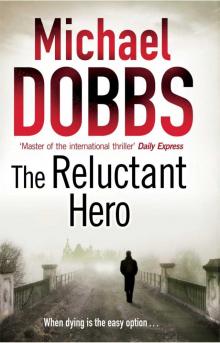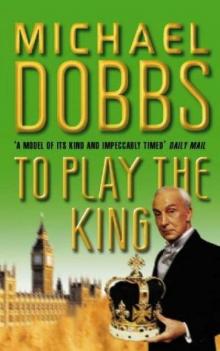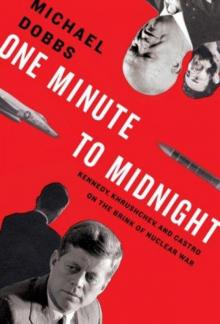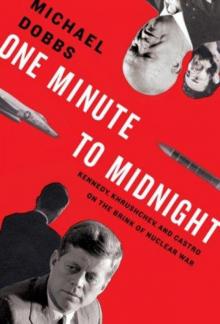- Home
- Michael Dobbs
The Buddha of Brewer Street Page 6
The Buddha of Brewer Street Read online
Page 6
‘If you rely on Government to put out the fire, by the time the bucket arrives there is nothing left but ashes,’ he read.
He smiled wryly. ‘Two thousand years and nothing’s changed.’
‘At least in those days the Government could afford a bucket.’
‘But I don’t understand. Why is a Tibetan man of peace passing on the musings of a Chinese warlord?’
‘There’s a letter in the back.’
It was written in a bold hand.
‘My dear Thomas Goodfellowe, I have been interested in military strategy since I played with lead soldiers in the Potala Palace as a child. In those days I always won! We Tibetans were once a warrior race, but now we must fight our battles by other means. Sun Tzu often shows how. I thought he might interest you. Especially since the future has a Chinese face.’
That phrase again. It was dated and signed in Tibetan script that meandered like an ancient river in flood across the page.
‘Bit like the bloody Times crossword, isn’t it?’ Mickey interjected. ‘“The future has a Chinese face.” Does that mean he’s given up?’
Goodfellowe stared at the letter. ‘No, of course he hasn’t given up. Can’t have given up. This is all about continuing to fight the battle, but by other means.’
‘What other means?’
He shook his head. ‘Dunno.’ He placed the book in a desk drawer and turned to the pile of correspondence. ‘And since he’s not a constituent I don’t suppose we’re ever going to have the time to find out. His battles aren’t our battles. They weren’t when I was a Minister, and can’t be now I’ve no more influence than yesterday’s weather forecast.’
Goodfellowe was wrong, of course. He would come to realize that, as soon as he discovered the letter was probably the very last thing the Dalai Lama had written in this life.
Mo could scarcely contain his frustration. He had rushed into the Ambassador’s office, perhaps a trifle enthusiastically but only in order to pass on the good news. Yet he had been forced to stand, humiliated, before her desk while the ancient warrior prattled on about courtesy and youth. It wasn’t as if she had been busy with anything of importance, merely rearranging the clutter of family photographs that dominated her desk.
‘A private secretary should know when privacy is meant to be respected. If they want to remain a private secretary, that is.’
She was constantly changing around those photographs, a daily ritual, like some old woman throwing fortune sticks in the temple. Faded sepia prints of her mother and father, revolutionaries who had met on the Long March, six thousand miles through central China to the caves of Shaanxi. Also one grandmother. Two aunts who had died on that march. Sisters. And of course her only daughter. A sickness her family had, only producing girls. The shame of the Lins.
‘Doors are meant for knocking on, not kicking down,’ Madame Lin lectured.
Mo hung his head, less in respect than in an attempt to hide the flush on his cheek. Listen to her! Kicking down doors? But that’s what the new China was about. The Ambassador was an old woman in an outdated world who had been left behind by the changes that were gripping their country. Sure there was corruption. And chaos. Hadn’t there always been? But now there was also something new. Opportunity. Open doors. Even if occasionally those doors needed a little forcing.
He took a deep breath. ‘Ambassador, I apologize.’
She waved her hand impatiently, leaving Mo unclear as to whether she was waving away his presence or his offence. He seized the moment.
‘But there is wonderful news that I wished you to have.’ His tone grew more eager. ‘The renegade Lama is dead.’
She became thoughtful, then grew unsettled, almost concerned. He had expected her to respond to the news, but not in this manner.
‘I thought you would wish to celebrate,’ he added, suddenly uncertain.
‘Then your presence is even less appropriate than I thought, Private Secretary.’ She always used his formal title when slapping him down. The deep frown was back, creasing her forehead.
‘I don’t understand, Ambassador.’
‘The first perceptive thing you’ve said all day.’
She was unusually brittle this morning. More bowel trouble, perhaps. Best to pacify. He bowed. ‘It would be an honour if you would explain.’
How he hated this vast office at the heart of the Embassy. They might just as well have been back in old Beijing rather than at the centre of a thriving Western capital. When the new Ambassador had arrived it had been an opportunity to bring the place to life with some of the new colour and fashions that were coming out of Shanghai and Hong Kong, but the old woman had turned it into something fit only for the scrapbook of a dowager empress – heavy rosewood chairs complete with antimacassars, dark lacquer screens, heavy rugs, oppressive potted plants. No imagination. All imported from home, even the musty smell, which seemed to have been borrowed from some dank winter’s day in central Beijing.
Madame Lin walked across the room to stand silhouetted against the window, where she lit a cigarette and took the smoke down to the bottom of her lungs.
‘So the Lama is dead,’ she repeated.
‘Gone. Wiped away,’ Mo enthused.
‘No, that’s where you are wrong. Simply because he was an enemy you underestimate him.’
‘But there is nothing left to underestimate.’ He struggled to hide his exasperation, and was not altogether successful.
‘In life he was significant. Yet in death he is a still greater uncertainty. And we have enough uncertainty in China today to satisfy even the keenest sceptic. Which is why young men like you are in such a hurry, Mo.’
Her tone was chiding and he wasn’t entirely sure what she was getting at. Time to get back to the matter in hand. ‘You are suggesting he is more of a threat to us dead?’
‘While he lived we knew where he was, what he was up to. Our eyes were always upon him. But how can we follow him now?’
‘You can’t believe in the absurdity of rebirth?’ Mo was aghast. His training at the Foreign Affairs Institute in Beijing had been most specific on the point.
‘It doesn’t matter what I think. What matters is what millions of Tibetans think, and they believe he will come back to lead them. A new Lama. Like a Messiah. While they are waiting they will make trouble. And when he returns, whoever he may be, they’ll make even more trouble. The wind blows cold from those mountains.’
‘Then we must remain alert, Ambassador.’
She turned on him. ‘The question, Mo, is whether you will remain at all.’
‘Ambassador?’
‘You take me for a fool. That I cannot tolerate.’
He began to protest. She cut him short.
‘You steal antiques and artefacts from the Embassy, Mo. My Embassy.’
Thick cigarette smoke hung in the air, creating an atmosphere that was suddenly clinging and intensely claustrophobic. ‘Ambassador, I can assure you …’
‘You can assure me of nothing. I know, Mo. About how you’ve been moving antiques around the Embassy. To hide them. Sending them off to your cousin in Amsterdam and having them copied. Then selling the original, and returning the fake to the Embassy.’
She was by the fireplace now, with Mo still protesting.
‘Not true. Not true …’
As though to prove her point she picked up an earthenware cocoon vase from the mantelpiece, covered in devils’ eyes and subtle whorls and the encrustations of age. She held it shoulder-high for his inspection. ‘How old would you say, Mo? One thousand? Two thousand? Han dynasty, I think. Yes, two thousand years old.’
Then with remarkable dexterity for a woman of her age she lobbed it across the room in his direction. In alarm Mo reached out and snatched it from the air, juggling desperately with it for a few tangled moments. But he couldn’t hold it. It fell. And smashed to fragments.
‘Not even two thousand days, Mo. But a very effective copy, nonetheless. Your cousin is to be congratulated.�
��
Across the vast space which seemed to separate them their eyes met and locked, and a change came over Mo. The cringing of previous moments was replaced by something altogether more substantial. If the game was up, he decided, there was little point in continuing to be horsewhipped by a woman. ‘Ambassador, I believe that is the first compliment you have ever paid me or my family.’
She ignored his impudence. ‘Why, Mo? Why all this dishonesty?’
He shrugged. ‘Only three pieces have gone. The first went to pay your predecessor’s gambling debts.’ His tone had an edge of disdain.
‘You never told me he gambled,’ she accused.
‘As you would not expect me to gossip to your successor about you.’
‘And the second piece? What became of that?’
‘It went to pay the outstanding bills on the refurbishment of your Residence.’
‘But why? The budget has been exceeded?’
‘No, simply not paid by the Foreign Ministry. Our budgets are months behind. I thought it wise to pay the bills and fix your leaking roof. And equally prudent not to tell you about it.’
She nodded. The Chinese economy was in chaos and Embassy expenses were beginning to fall ever farther down the list of Foreign Ministry priorities. The Residence was tired, unkempt, in need of refurbishment. What Mo said made sense. Her tone grew more emollient.
‘And the third, Mo? The third piece went for what purpose, please?’
He knew she would come to that. He had carefully dragged his Ambassadors into his little game, paying some of their debts and soiling them by association. But he knew it wouldn’t hide his own activities. Mo was one of the brightest and best-qualified young diplomats of his generation. Fudan University before the Foreign Affairs Institute. Every step of his career accompanied by commendations and acclaim. That’s why many years earlier than he might have expected he’d ended up in London, one of the most prized of foreign postings. But he and the other staff might just as well have been posted to a warehouse in Ulan Bator. Of London itself they knew and saw practically nothing. They weren’t allowed to touch. They lived almost entirely within the Embassy walls. They ate in the Embassy’s canteen, worked beneath the Embassy’s harsh lights and slept in the Embassy’s unwelcoming and lonely beds. The cockroaches here were almost as big as in their old university dorms. And their greatest excitement – oh revolutionary joy! – proved to be a communal bus trip to Brighton. Windy, rain-splattered Brighton. Next year they had been promised Bognor.
Even as the secretaries fluttered at the prospect of Bognor, Mo felt sick with frustration. And his sickness grew. One day he had been permitted (after first reporting to Security) to walk to the Chinese pharmacy in Shaftesbury Avenue so that he might pick up some herbs for the Ambassador. Just down from the pharmacy he had found a young man and his dog, wrapped in a blanket in a doorway. A beggar in the midst of plenty. Proof before his eyes of the Western disease. Except that in his bowl the young man and his dog had made more money in a morning than Mo could spare in a week. A Chinese diplomat, yet he couldn’t even look an English beggar in the eye.
It could have been worse, of course. Mo was already on the ladder of privilege which, as he climbed, would eventually bring him advantage and reward. Yes, eventually. He’d just decided it would make sense to short-circuit the system a little. To grab some of the benefits before he was too old to enjoy them. Certainly before he was as old as Madame Lin. But he wasn’t about to tell her that. So he said nothing, simply returning her stare defiantly. Why should he incriminate himself? But in spite of his silence, she knew.
‘I see. You had touched forbidden fruit and decided to taste it for yourself.’
‘What do you propose to do?’
‘The rules say I should send you back to Beijing.’
He flinched. ‘Where the People’s Republic will show its gratitude by taking me to a football stadium, placing me on my knees in front of the crowd and blowing my brains out through my ears.’
‘You have broken the rules.’
‘As did your predecessor,’ he protested with vehemence. ‘But I doubt that he will be kneeling beside me. There are privileges that accompany rank, even in the People’s Republic.’
‘Perhaps particularly in the People’s Republic.’
Mo started. The prospect of being done to death permitted a measure of cynicism. But he hadn’t expected Madame Lin to reciprocate.
‘Simply because I am an Ambassador does not make me blind, Mo. And simply because I am old does not make me forget.’
‘Forget what?’
‘That I too was once young. A Red Guard. We shot people too, during the terror of the Cultural Revolution. We shot people who had done much less than you. Some who had done nothing at all. We made mistakes far worse than yours.’ She paused. ‘There has been too much shooting.’
His heart stuttered in hope and disbelief. An old woman, an old revolutionary, come to repentance? ‘What do you intend to do with me?’
‘Mo, you are no older than my own daughter. You are a fool in some matters, like politics. But you are adventurous. And adaptable. Such qualities will be necessary in the difficult times ahead.’
‘So … what do you intend?’ he repeated.
She left him hanging for a few pain-filled moments, like a fish impaled on a hook. ‘I intend that you should notice the gap on my mantelpiece, Mo. Where there should be something very old.’ She reeled him in. ‘Perhaps your cousin can fill it for me.’
They came together to remember him in many corners of the globe. Particularly in Tibet, before the baton charges and electric prods of the People’s Armed Police forced them to flee. Around the world they gathered in small groups, and in vast crowds, the high and the humble, monarchs and those who were merely mortal, to give thanks for the life of Tenzin Gyatso, the fourteenth Dalai Lama.
On the mountainside in McLeod Ganj, in front of the steps that led to the temple of the Naingyal Monastery, they built a great brass chorten, a tomb which they covered in gold leaf and decorated with many precious stones. And above it they built a canopy of blue, yellow, white, red and green, the symbolic colours of the sky, the earth, water, fire and air. And the body of the Dalai Lama was taken from its cave and prepared by embalmers in the ancient tradition, washing the eviscerated body in milk and rubbing it with salt. The face and hands were also covered in gold leaf and the body, wrapped in brocade robes, was placed in its position of meditation within the chorten.
A small window was left in the side of the chorten so that the body might never leave his followers’ sight.
The monks, led by the abbot of Namgyal, began to chant the protector rights, praying that his teachings might be preserved and the body might be safeguarded, and also that the reincarnation would be swift. The national flag of Tibet that in normal times flew above the monastery was hauled down and would not be raised again until many weeks of mourning were complete.
And when gifts had been bestowed upon those monks and craftsmen who had laboured to build the chorten, the ordinary people came to offer their own prayers and tears, and to make prostrations, giving thanks for his life and many works. And across his empty throne they placed a mountain of white prayer scarves.
Then they waited for his return.
THREE
More than three years had passed since the death of the Lama. Years of emptiness and anticipation for those who were waiting in the hope, or in the fear, that he would come again.
It was spring. Violent. Unpredictable. The ageing sash windows were locked against the dampness but as always they leaked and rattled. All winter long she had nagged her husband to fix them, concerned that the chill winds would get into the child’s chest. To no avail; he was always so busy. By the time the task had grabbed his attention it would be high summer. ‘There, I told you not to bother,’ he would say, looking up from his tea and laughing at her. ‘I was born in a mud hut up a mountain and you go on about a few draughts. The child needs a bit of fre
sh air. You worry too much.’ In less defensive moments he had promised that one day they would move into a larger place where she could have room not only for herself but maybe even for another baby, somewhere away from the noise and the traffic. One day, he promised, but for the moment she must be content. The laundry business on the ground floor was still no better than struggling, not a time yet for taking great leaps. She was impatient, at times angry. This was not a part of town to set up a family, and in her opinion it was scarcely a part of town to set up a cleaning business either, not with the condition of some of the clothes and bed linen that were brought in. Only this morning she had repaired one of Sophie’s costumes. It had clearly been slashed with a razor. Yet Sophie had merely given her that bold, brash, sad smile of hers and made some excuse about another day, another downer. Do your best, Sophie had asked, and she had done, but the best in this place, like the windows, was never good enough.
She should have fixed the windows herself. Never too late. It only needed a few twists of paper to be forced into the gaps. So she found a roll of brown wrapping paper in the back of the cupboard and began cutting it into pieces. ‘Paper. Paper,’ she said to the child, encouraging him to repeat the sound, but as yet he had shown no inclination to talk, even at two years of age. He preferred to sit and watch her, as he was doing now, his eyes bright and aware, and exceptionally dark, even for an Oriental. ‘Paper, paper,’ she repeated, but he merely chuckled and tried to bite the head off his Teletubby.
‘You’re stubborn. You get that from your father,’ she chided, opening the window. From the narrow street below came the clatter of the open-air market. Customers complaining. Car horns blaring. Traders tossing argument and optimism back and forth to get themselves through their long days.
It took her back to her own childhood, when some of her first recollections were of wandering with her own mother through the local market in search of fresh meat and vegetables, and sorting out a little of the freshest gossip while they were about it. That was thirty years ago. Now, down below her, the cries of the market had reached such a pitch that a stranger might think a full-blown quarrel was about to erupt, yet it was nothing more than the hard-handed humour of the street. Just like her childhood.

 Last Man to Die
Last Man to Die Winston's War
Winston's War The House of Cards Complete Trilogy
The House of Cards Complete Trilogy Saboteurs
Saboteurs The Touch of Innocents
The Touch of Innocents WC02 - Never Surrender
WC02 - Never Surrender Old Enemies
Old Enemies Churchill's Triumph
Churchill's Triumph The Edge of Madness
The Edge of Madness Goodfellowe MP
Goodfellowe MP The Final Cut
The Final Cut Whispers of Betrayal
Whispers of Betrayal Churchill's Hour
Churchill's Hour The Buddha of Brewer Street
The Buddha of Brewer Street The Reluctant Hero
The Reluctant Hero To Play the King
To Play the King One minute to midnight
One minute to midnight House of Cards
House of Cards The Lords' Day (retail)
The Lords' Day (retail) Whispers of betrayal tg-3
Whispers of betrayal tg-3 One minute to midnight: Kennedy, Khrushchev, and Castro on the brink of nuclear war
One minute to midnight: Kennedy, Khrushchev, and Castro on the brink of nuclear war The Final Cut fu-3
The Final Cut fu-3 To play the king fu-2
To play the king fu-2 A Ghost at the Door
A Ghost at the Door A Sentimental Traitor
A Sentimental Traitor